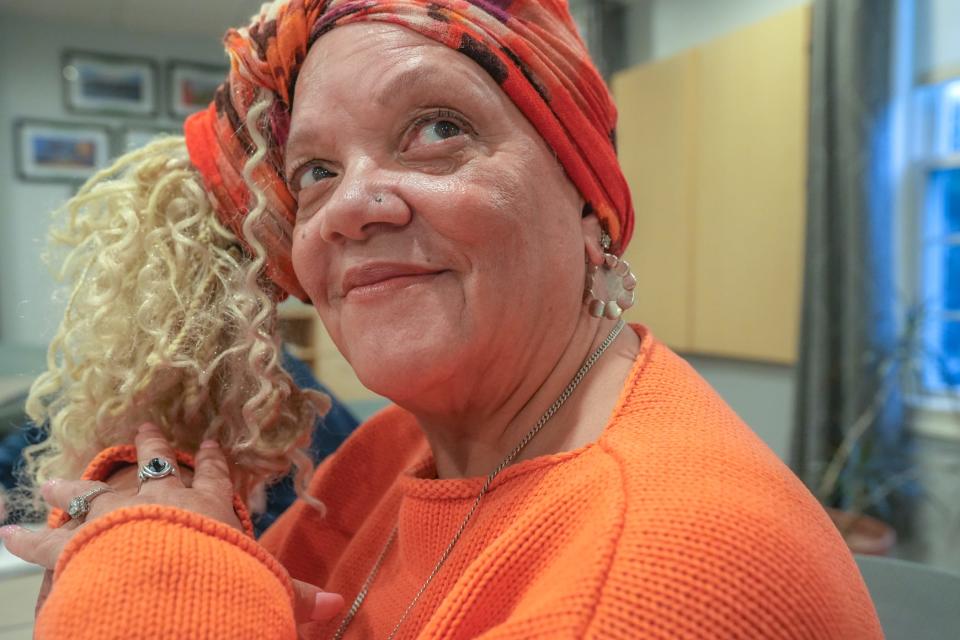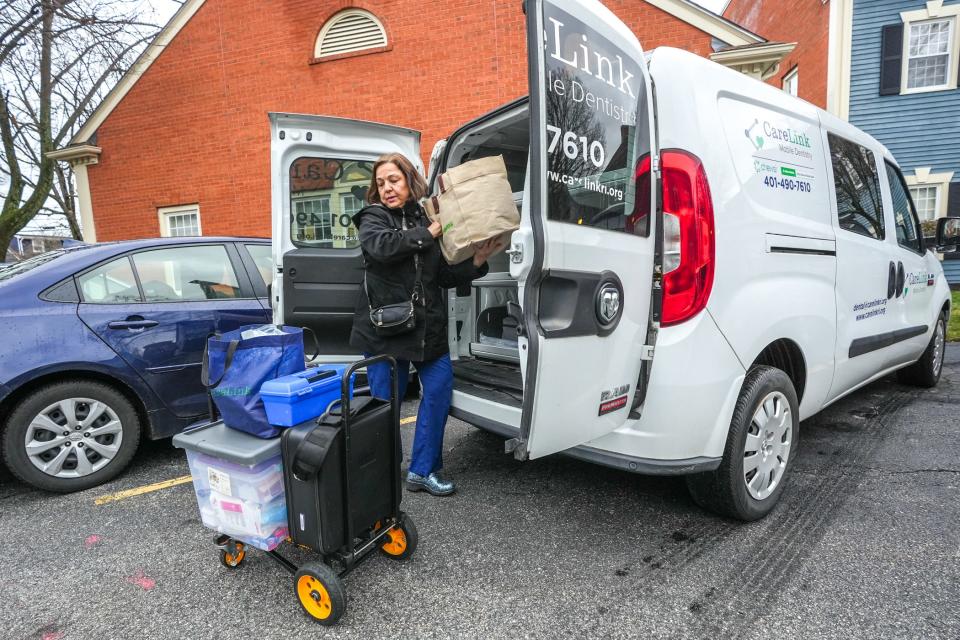Many RI dentists don't accept Medicaid. Those patients struggle to find care.
Nancy Wilson is known for her grin. Now in her seventies, Wilson recalls a school yearbook message addressed to "the girl with the beautiful smile."
But delayed dental care for missing teeth became a daily reminder to Wilson that, while on Medicaid, she could barely afford to get help.
"Needless to say, I was becoming depressed," Wilson said in a recent interview. "I’m a singer, and when you have these dark patches when you’re singing, they’re noticeable. And of course I couldn’t afford implants. So I stopped smiling."
Wilson, 75, is one of the roughly 350,000 Rhode Islanders on Medicaid with limited options for dental health care providers. Many offices don't accept the coverage because of its low reimbursement rates. The underfunded system saw a rise in rates in July 2022 – the first increase since the 1990s – but options for affordable care remain limited.
Wilson was initially told dentures would cost her more than $385, a bill she couldn't afford. It was through CareLink, a nonprofit serving older Rhode Islanders, nursing home residents and those on Medicaid, that Wilson was able to receive dentures last fall. For a service that cost more than Wilson's initial estimate, Medicaid reimbursed the nonprofit only $135.

'We beg, borrow, ask for grants and donations,' says CareLink CEO
In 2021, CareLink CEO Chris Gadbois said the organization was "losing money every month." In March of this year, she said CareLink was still struggling.
"We beg, borrow, ask for grants and donations," Gadbois said. "And our dental team, unfortunately, works for pay that’s … less than what we could get out in the world."
More: RI's low Medicaid reimbursements endanger dental care and other services for needy
The most recently available tax information from fiscal year 2022 shows that, with around $7.7 million in revenue and nearly $7.3 million in expenses, CareLink barely broke even, with less than half a million dollars in net income.
About 28% of the nonprofit's revenue came from contributions and grants, which totaled significantly less than the prior year, and the rest of its revenue came mostly from services offered.
For those working at CareLink, it's a labor of love, not moneymaking.
That includes Sue Perlini, a hygienist and director of mobile dentistry who has been in public health for nearly three decades. Pushing a cart packed to the brim with medical supplies, Perlini is part of several CareLink teams traveling to most of the state's nursing homes. She has a long history in mobile dentistry serving at-risk patients.
"I was the first hygienist to go into the schools in Rhode Island with portable equipment," Perlini said. "So I’ve always been in public health. I’ve always wanted to give back, and I feel that’s important."
More: RI dentists warn of looming shortage 'superstorm.' Here's what's driving it.
Reimbursement rates still too low to cover adequate care
Sen. Lou DiPalma, who has pushed for increases to Medicaid reimbursement rates, said the situation is better but "not good enough."
Prior to the 2022 increase, rates remained unchanged for about 30 years. DiPalma said that would be like if you went to "your favorite supermarket, and you said I’m going to buy this loaf of bread and I’m going to pay you what it was in 1993."
"We as a state expected that was OK – to reimburse at a rate from 30 years ago," he added.
Sam Zwetchkenbaum, dental director at the Rhode Island Department of Health, said the rate change brought no seismic shift in provider options. The major issue is the rising cost of services.

More: RI state agency asks for $218M Medicaid spending hike. Here's what it will fund.
"Did it have the impact we were hoping? Did it increase the number of dentist providers? I think part of the challenge was that it is more costly to provide dental practice," Zwetchkenbaum said. "Things like infection control have gotten more costly. Information, the electronic health records have gotten more costly."
Providers are still hesitant to accept Medicaid, complaining about patients who are late to appointments or miss them altogether, Zwetchkenbaum said. But those patients may have unique situations, he added, such as a recent eviction that forces them into a different neighborhood where they're unfamiliar with bus routes.
This is where community health workers step in, attempting to link patients with care. The Department of Health describes them as "frontline, public health professionals who often have similar cultural knowledge, practices and beliefs, chronic health conditions, disabilities, or life experiences as other people in the same community."
According to Zwetchkenbaum, these workers have already slightly reduced the rate of missed appointments at Thundermist, one of the state's federally qualified health centers serving low-income patients.
For patients still having trouble finding offices that take Medicaid, relief is limited. The state's enacted fiscal year 2023 budget contained $8.1 million "to support enhanced rates to Medicaid adult dental providers," said Department of Administration spokesman Derek Gomes. But the $220 million Gov. Dan McKee is seeking for in reimbursement rates over the next three fiscal years will be all for social and human services – not medical or dental services.
In the meantime, Zwetchkenbaum said, it's time to get more providers on board.
"When I would talk with dentists, I was like, how come you’re not participating? And they’re like, I don’t even want to talk about it because of the rates," he said. "So now that we’ve adjusted the rates, let’s have those other conversations about using community health workers … about transportation."
This article originally appeared on The Providence Journal: Medicaid dental patients in RI left in dire situations

